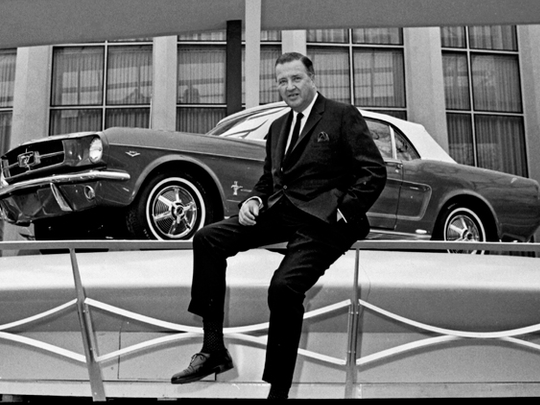
“There should be music, and the warmth of fellowship… for I do not wish to be remembered only in a solemn fashion.” Henry Ford II was so obsessed with being in control over everything around him that he left clear instructions on exactly how he wanted his funeral to be.
While alive, he believed the boss should always be the boss, and right from the moment he assumed power at his grandfather’s company in 1945, The Deuce, as he came to be known, made sure everyone realised who was the boss.
Anyone whom Ford deemed remotely threatening to his authority was summarily dismissed, however good an employee he was. The most famous victim of his authoritarian rule over the Blue Oval being Lee Iacocca, who was unceremoniously thrown out of the company because Ford believed he was gunning for the top post.
So overwhelming was his autocratic streak that, sadly, his real legacy is often forgotten. Without being groomed to take over of one of the world’s best known corporate entities, Henry II in fact did a stellar job in turning the company’s waning fortunes around.
Joining Ford in 1943, he found that after his father Edsel’s sudden demise, his now senile grandfather was slowly handing over power to outsiders, and the company was on the verge of collapse, losing close to $10 million (Dh36.7 million) a month.
In 1945, with help from his mother and grandmother, he managed to take control of the company. Once in power, he wasted no time, firing his grandfather’s former aides — like Harry Bennet — and hiring the likes of Robert McNamara, Ernest Breech and Charles Thornton: some of the best business minds in the country.
Realising he was not yet ready for the role, he took advice from these legendary managers, and together with them, succeeded in turning the company’s fortunes around.
Under his stewardship Ford became a publicly traded company, expanded overseas and came out with two of the most distinguished models in automobile history: the Thunderbird and the Mustang.
And by the time he quit from the top post and was heading the finance committee in the mid-Eighties, Ford Motor Company, which he took from the brink of bankruptcy, reported profit figures that were more than those of General Motors — for the first time since 1924.
The greatest tribute to Henry Ford II’s management style, ironically, is Iacocca’s professed desire to live, work and retire like the man who sacked him.











